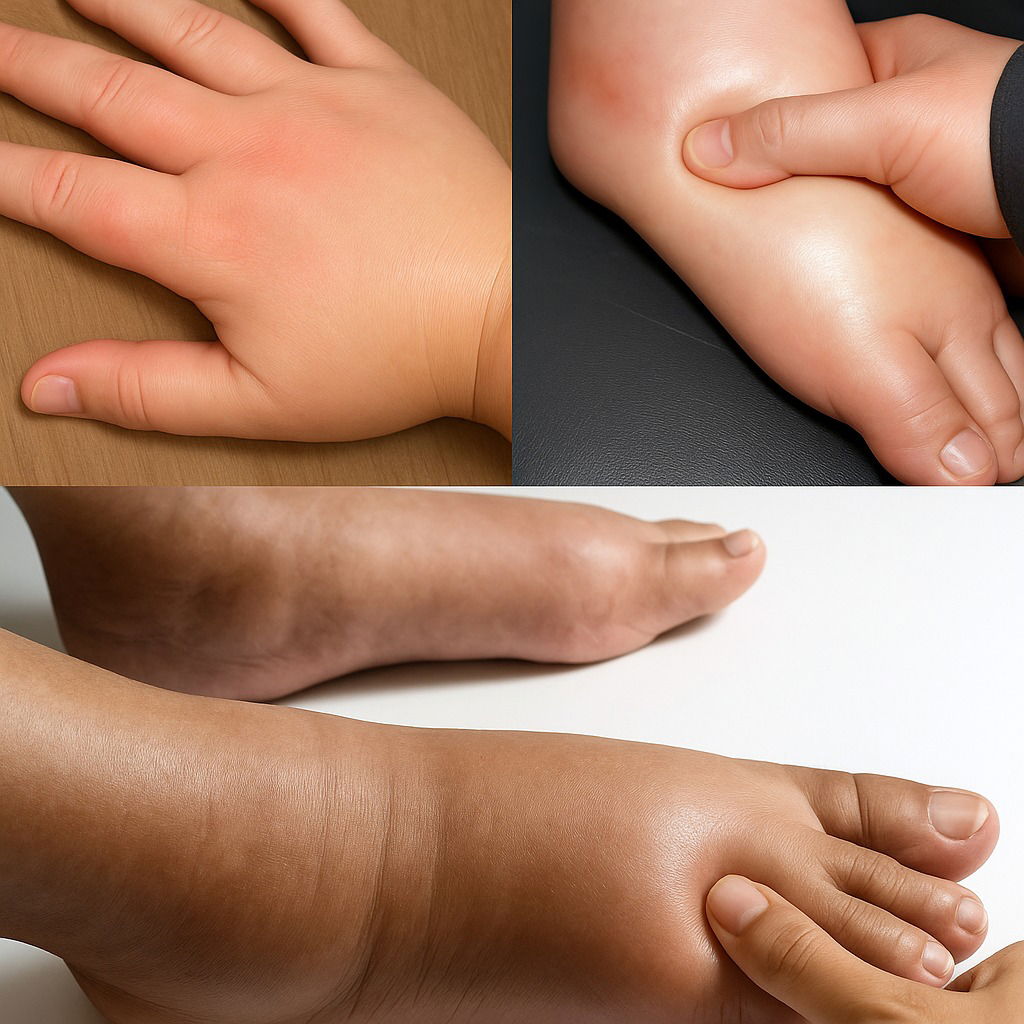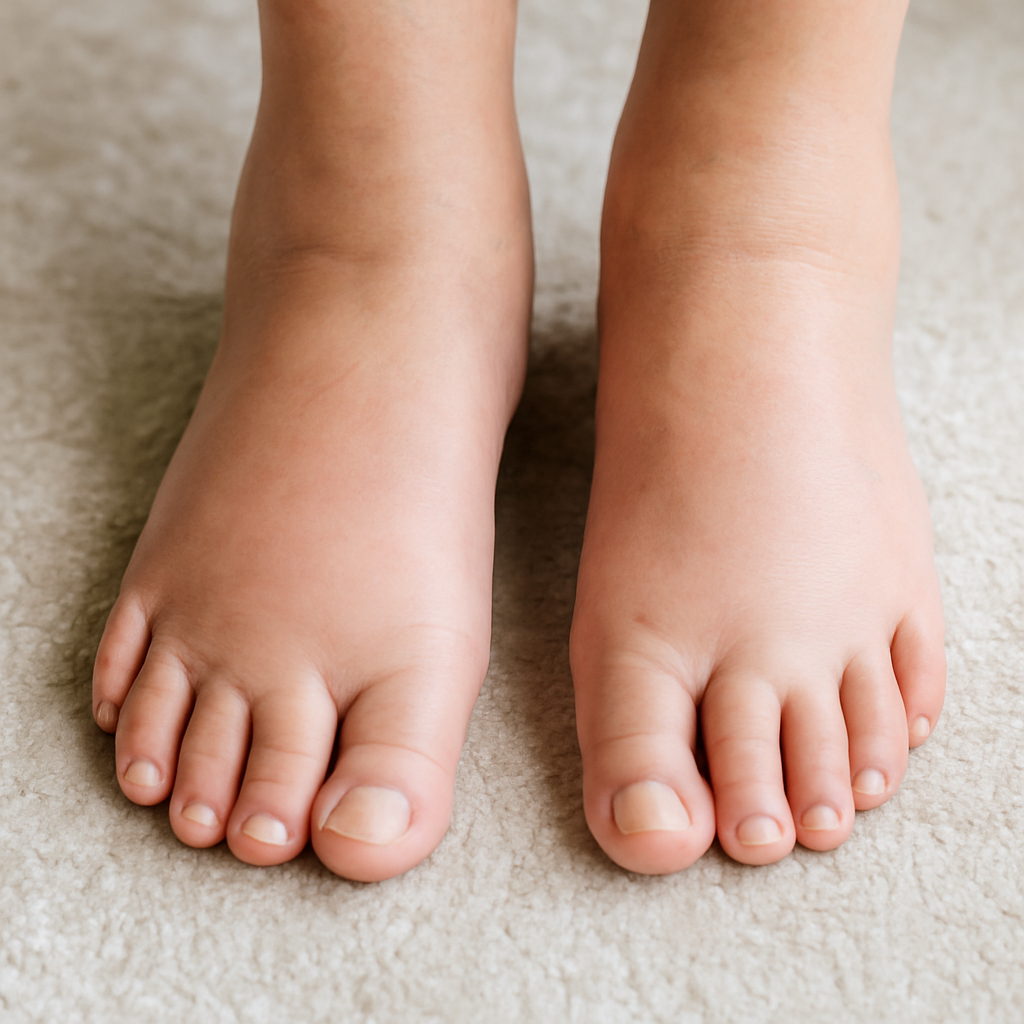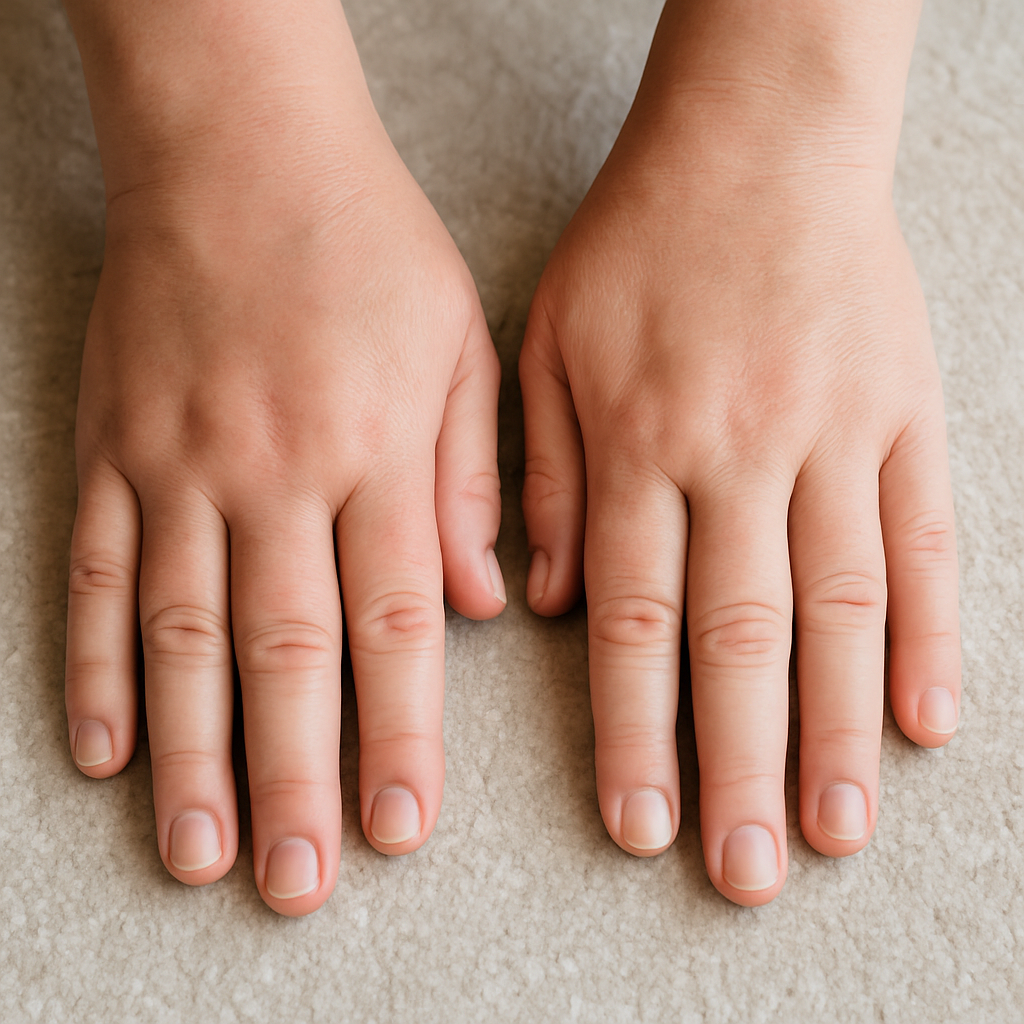Have you ever looked down at your hands or feet and noticed they appear puffier than usual? Maybe your rings feel tighter, or your shoes don’t fit like they used to. Swelling—especially in the hands and feet—is a common issue that many people experience at some point. But what causes it, and when should you seek medical attention?
Let’s break it down.

What Is Swelling?
Swelling, also known as edema, happens when excess fluid builds up in the tissues. It can affect any part of your body but is most common in the hands, feet, ankles, and legs due to gravity.
Mild swelling may come and go, but persistent or severe swelling could point to an underlying health issue.
Common Causes of Swollen Hands and Feet
1. Fluid Retention (Edema)
The most frequent cause of swelling is simple fluid buildup, often due to:
-
Sitting or standing too long (especially in hot weather)
-
Too much salt in your diet
-
Not drinking enough water
-
Hormonal changes, like during menstruation or pregnancy
You might notice the swelling is worse at the end of the day and improves after elevating your legs or resting.
2. Poor Circulation
If your blood isn’t circulating properly, fluid can pool in your extremities. This is often due to:
-
Heart problems, such as congestive heart failure
-
Varicose veins or damaged valves in the legs
-
Deep vein thrombosis (DVT) – a blood clot, usually in the leg
In these cases, swelling is usually more noticeable in the legs and may come with heaviness or aching.

3. Kidney or Liver Issues
Your kidneys and liver help balance fluid and remove waste from your body. If they’re not working well:
-
The kidneys may allow fluid and sodium to build up.
-
A damaged liver (e.g., from cirrhosis or hepatitis) can reduce protein levels in the blood, causing fluid to leak into tissues.
This kind of swelling may be more persistent and generalized, not just in hands or feet.
4. Lymphedema
Your lymphatic system drains fluid from tissues. If it’s blocked or damaged—due to surgery, infection, or cancer treatment—lymph fluid can accumulate, leading to chronic swelling, especially in one arm or leg.
Signs of lymphedema include:
-
A feeling of tightness or heaviness
-
Reduced range of motion
-
Thick or hardened skin over time
5. Medication Side Effects
Several medications can cause swelling as a side effect:
-
Calcium channel blockers (for high blood pressure)
-
Steroids
-
Hormone treatments (like estrogen or testosterone)
-
Diabetes drugs (such as pioglitazone)
Always check with your doctor before adjusting your medication.
6. Injuries and Inflammation
Swelling is a natural response to injury or inflammation. Common causes include:
-
Sprains or fractures
-
Insect bites or infections
-
Arthritis (e.g., rheumatoid arthritis, osteoarthritis, or gout)
In these cases, swelling is usually localized, may appear suddenly, and is often accompanied by pain, redness, or warmth.
7. Pregnancy
Mild swelling in the hands and feet is normal during pregnancy, especially in the third trimester. But if it’s sudden or severe, or comes with high blood pressure or headaches, it may indicate preeclampsia, a serious condition requiring immediate medical care.

When Should You Be Concerned?
While mild, temporary swelling may not be a problem, you should see a doctor if you experience:
-
Sudden, unexplained swelling
-
Swelling only on one side (especially in the leg)
-
Swelling with shortness of breath, chest pain, or dizziness
-
Redness, warmth, or pain in the swollen area
-
Persistent swelling that doesn’t improve after rest or elevation
-
Weight gain due to fluid retention
-
A history of heart, kidney, or liver disease
These symptoms could indicate something more serious like heart failure, kidney dysfunction, or a blood clot.
What Can You Do at Home?
If your swelling is mild and not related to a serious health issue, you can try:
-
Elevating your legs or hands above heart level
-
Reducing salt intake to prevent fluid retention
-
Staying well hydrated
-
Wearing compression socks or sleeves
-
Moving regularly—avoid sitting or standing too long
-
Using cold packs for inflammation-related swelling
Final Thoughts
Swelling in the hands and feet can have many causes—from something as simple as a hot day or salty meal, to more serious medical conditions like heart, liver, or kidney problems. The key is to pay attention to your symptoms and notice any changes in your body.
If you’re ever unsure, it’s better to speak with your doctor than to guess. Your body is wise—and swelling may be its way of asking for help.
Disclaimer: This article is for informational purposes only and does not substitute for professional medical advice. Always consult a qualified healthcare provider for personalized recommendations.


